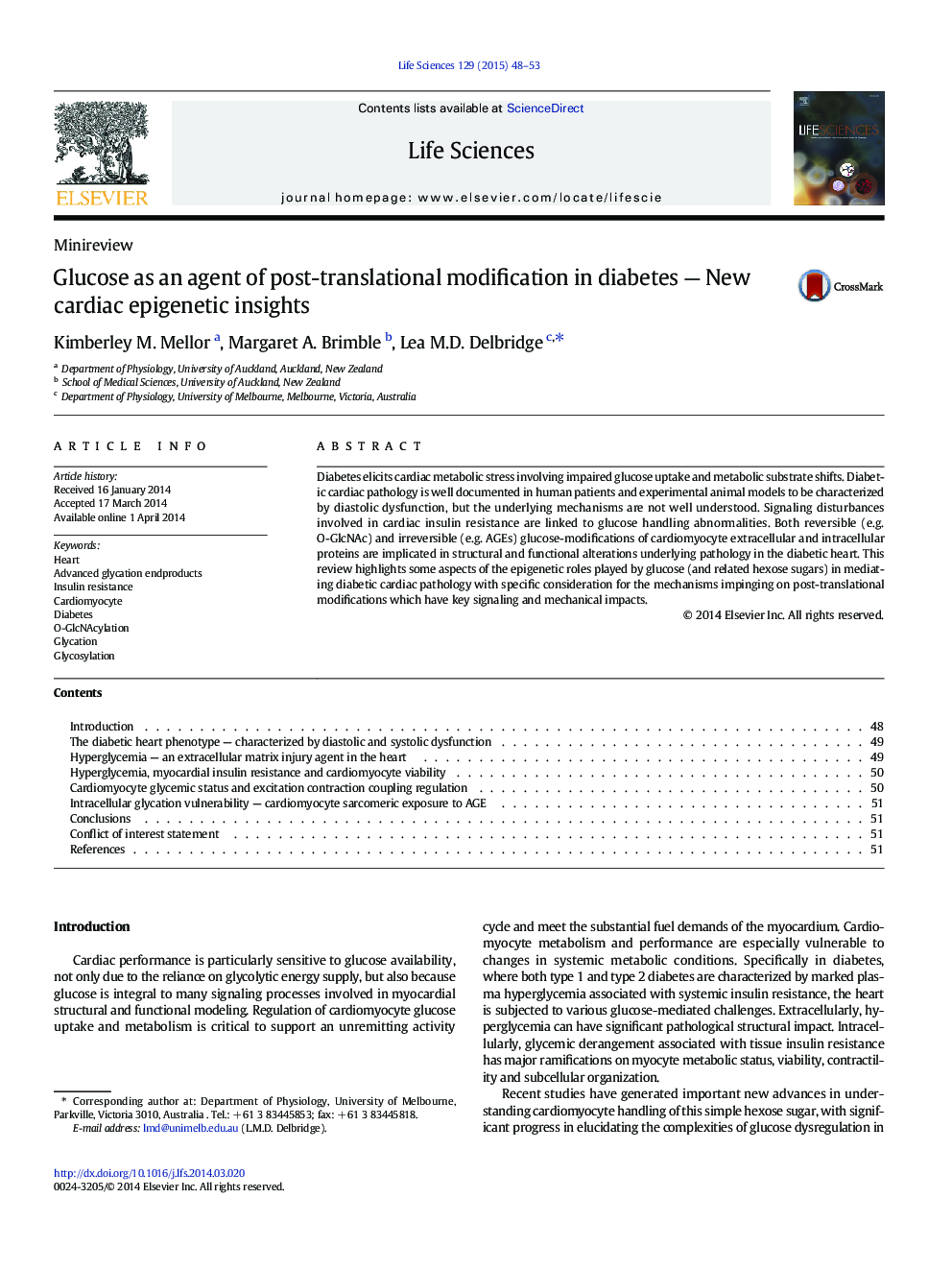| Article ID | Journal | Published Year | Pages | File Type |
|---|---|---|---|---|
| 2550949 | Life Sciences | 2015 | 6 Pages |
Diabetes elicits cardiac metabolic stress involving impaired glucose uptake and metabolic substrate shifts. Diabetic cardiac pathology is well documented in human patients and experimental animal models to be characterized by diastolic dysfunction, but the underlying mechanisms are not well understood. Signaling disturbances involved in cardiac insulin resistance are linked to glucose handling abnormalities. Both reversible (e.g. O-GlcNAc) and irreversible (e.g. AGEs) glucose-modifications of cardiomyocyte extracellular and intracellular proteins are implicated in structural and functional alterations underlying pathology in the diabetic heart. This review highlights some aspects of the epigenetic roles played by glucose (and related hexose sugars) in mediating diabetic cardiac pathology with specific consideration for the mechanisms impinging on post-translational modifications which have key signaling and mechanical impacts.
Graphical abstractEpigenetic mechanisms of diastolic & systolic dysfunction in the diabetic heart.Figure optionsDownload full-size imageDownload high-quality image (206 K)Download as PowerPoint slide
